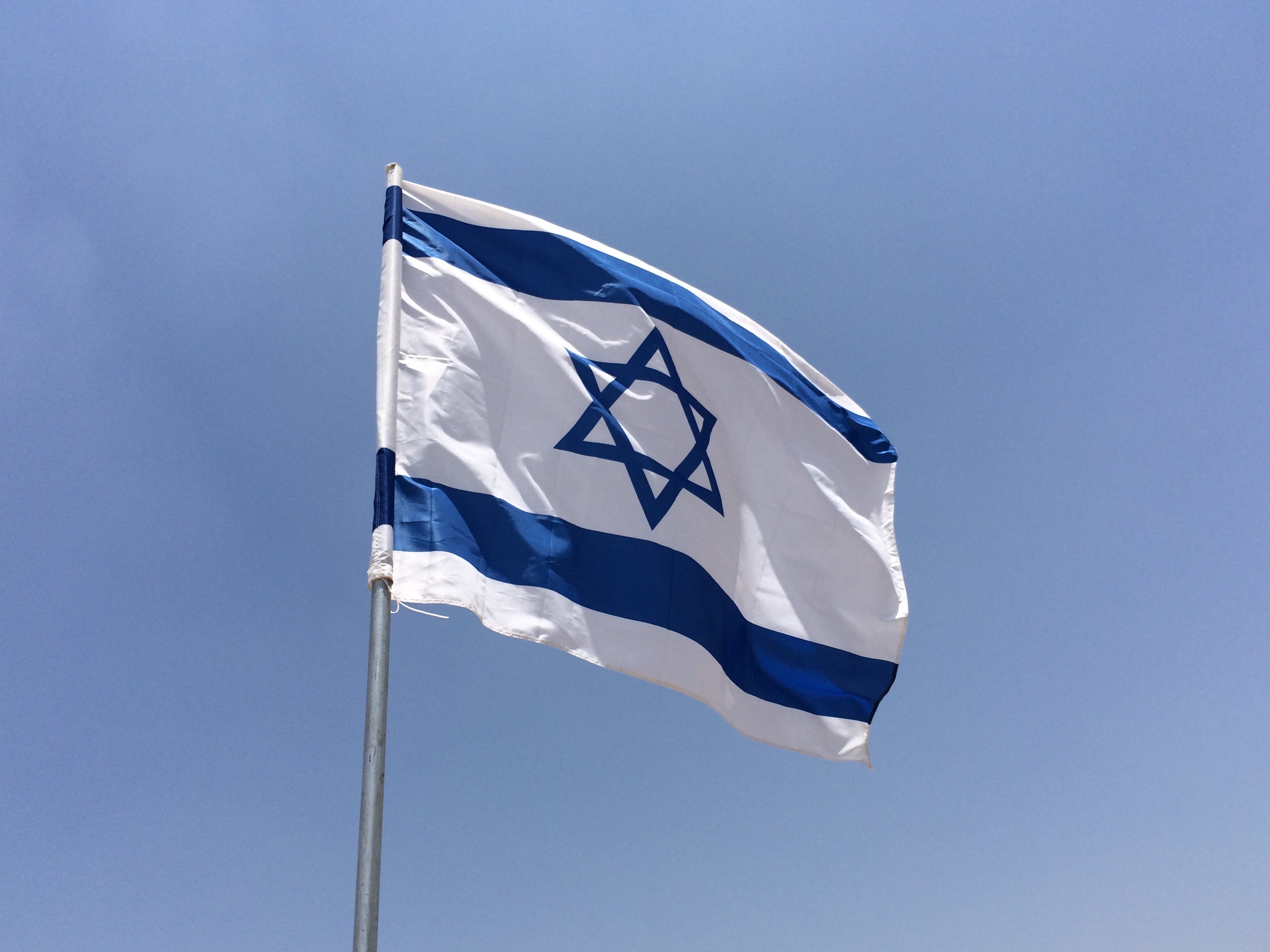 Photo from Wikipedia.
Photo from Wikipedia. I’ve never met Rabbi Sharon Brous. The spiritual leader of Los Angeles’ IKAR community thinks she knows me, though.
I am the “other side,” Rabbi Brous. Nice to meet you.
In a recent column in the Los Angeles Times, Brous writes about a trip she took with members of her family to the Jewish settlement of Hebron, a tiny, heavily fortified enclave abutting a large Palestinian city. Jewish tradition sees it as a holy city, where our Patriarchs and Matriarchs are buried. In 1929, 67 unarmed Jews, including women and children, were butchered by rioting Arabs. Today it is the epicenter of what most Americans associate with the most extreme West Bank settlers.
“Trust me, Ima,” her daughter told her. “I love Israel. I need to see the other side with my own eyes.”
What she saw included the hardships that many Palestinians face there, as well as the frankly extremist views of some Jewish residents. One of them expressed support for the notorious murderer Baruch Goldstein, the physician and Hebron resident who, in February 1994, opened fire on a hall full of Muslim worshipers, killing 29. The resident called Goldstein’s victims “animals.”
Brous then goes on to extrapolate from Hebron to everything that bothers her about the Israeli government—the oversimplifications of pro-Israel messaging, the alienation of American Jews from Israel, and so on. When you see the most extreme counter-reality, she seems to be saying, you know that the government is encouraging a line that no American Jew with a conscience can abide.
It is a moving piece, in part because she prefaces it with the genuine love she shows for Israel—a love that includes not just reading the news, but taking her kids to Israel and making sure they’re in constant touch with family in Tel Aviv.
The visit to Hebron, she writes, was meant to teach them the “complexities” of Israel.
Here’s the thing. I’m a well-read, socially liberal, fairly secular, free-market, geopolitical hawk. I opposed the surrogacy law and support the Nation-State Law. I oppose Occupation, but am realistic about the impediments to a deal right now and the risks of unilateralism, and the need to learn lessons from the Oslo disaster. I’m likely to vote center-right, but I’m in nobody’s pocket.
I’m representative, in other words, of the actual Israeli “other side,” the kind of Israeli that Likud, Yesh Atid, Kulanu, Kadima, Israel Beiteinu and Jewish Home are dying to reach. We are the silent majority of Israel, the answer to liberal American Jews’ endless bafflement at why Bibi keeps winning elections when everybody they know hates him.
Israel’s “other side” has virtually nothing to do with the people in Hebron—or at least, nothing that can be learned from a brief tour of it. If I want to show my kids the “other side” of America, I’m not taking them to a KKK rally.
And I sure wouldn’t have taken them to Hebron with Breaking the Silence—an organization whose credibility has been repeatedly called into question, and whose spokesperson, Dean Issacharoff, was caught fabricating his own purported beating of a Palestinian prisoner.
If you want your kids to understand the complexity of Israeli reality, challenge them for real.
Why do Israelis consistently vote for right-wing parties, when they clearly don’t share the views of the settlers of Hebron? Because the Left, very simply, failed them. Golda Meir failed them in the 1973 Yom Kippur War, and in the disastrous economic policies of the 1970s. Rabin and Peres failed them in the calamitous Oslo accords in 1993, which led to none of the peace they promised and a lot of dead Israeli friends. Ehud Barak, Labor’s last Prime Minister, failed them with his flailing impotence to stop the Second Intifada.
Nothing like losing a loved one in a terror attack or a war to focus the mind on the consequences of your vote on election day.
Like it or not, the leadership of the Right has led to a prolonged period of relative economic and physical security. Israelis—both Jews and Arabs alike—feel safer, and have an easier time paying their bills, than ever before. They do not have the luxury of risking that in exchange for leaders who sound nice, who say the things Jews in America want to hear.
Brous is obviously right when she says that “to love a place… does not necessarily mean to love its government.” There’s plenty to love in Israel’s diverse, eclectic and resilient society. But real love is not an abstract thing. It’s about listening to the other—really listening. Hearing uncomfortable opinions, serious opinions, presented as compellingly as possible.
With the new generation of American Jews, it means challenging them to think. It means exposing them to Israel’s many flaws and mistakes, yes, but also to the most reasonable version of opinions and views they disagree with. It means exposing them to the full complexity of Israeli reality.
I don’t know you, Rabbi Brous, and I do not question your love for Israel. But if you want to hear more about the real Israeli “other side,” call me on your next trip.
David Hazony is an author and Executive Director of The Israel Innovation Fund, a nonprofit dedicated to promoting Israeli culture in the world.






















 More news and opinions than at a Shabbat dinner, right in your inbox.
More news and opinions than at a Shabbat dinner, right in your inbox.